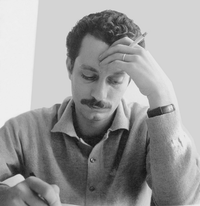
Akka, Palestine | Unknown - Unknown
Ghassan Kanafani was a prominent Palestinian writer, journalist, and political activist born in Acre in 1936. After the Nakba in 1948, Kanafani's family was forced into exile, settling in Damascus. His experiences of displacement deeply influenced his literary work. In Damascus, he worked at a printing press and later as a teacher for UN refugee schools. Kanafani became an influential member of the Popular Front for the Liberation of Palestine (PFLP), serving as its spokesperson and editing its magazine, Al-Hadaf. His literary works, including "Men in the Sun" and "Returning to Haifa," poignantly depict the Palestinian experience of exile, resistance, and identity. These stories are pivotal in "resistance literature," highlighting the Palestinian struggle for justice and self-determination. Kanafani was assassinated by the Israeli Mossad on July 8, 1972, due to his role in the PFLP. Despite his early death, Kanafani's legacy endures. His writings continue to inspire and inform indigenous liberation movements worldwide, symbolizing the enduring quest for liberation and self-determination.
This novella tells the story of three Palestinian refugees who attempt to smuggle themselves to Kuwait for better opportunities. It explores themes of despair and the harsh realities faced by Palestinian refugees.
This novel intertwines the stories of two siblings separated by war. The narrative explores themes of loss, resilience, and the enduring spirit of the Palestinian people.
This novella is about a Palestinian couple who return to Haifa after the 1967 war to find their home now occupied by Jewish settlers. It addresses the themes of identity, displacement, and the complex realities of Zionist colonalism.
This novella focuses on the life of Umm Saad, a Palestinian woman whose son joins the Palestinian resistance. It highlights the sacrifices and resilience of Palestinian women.